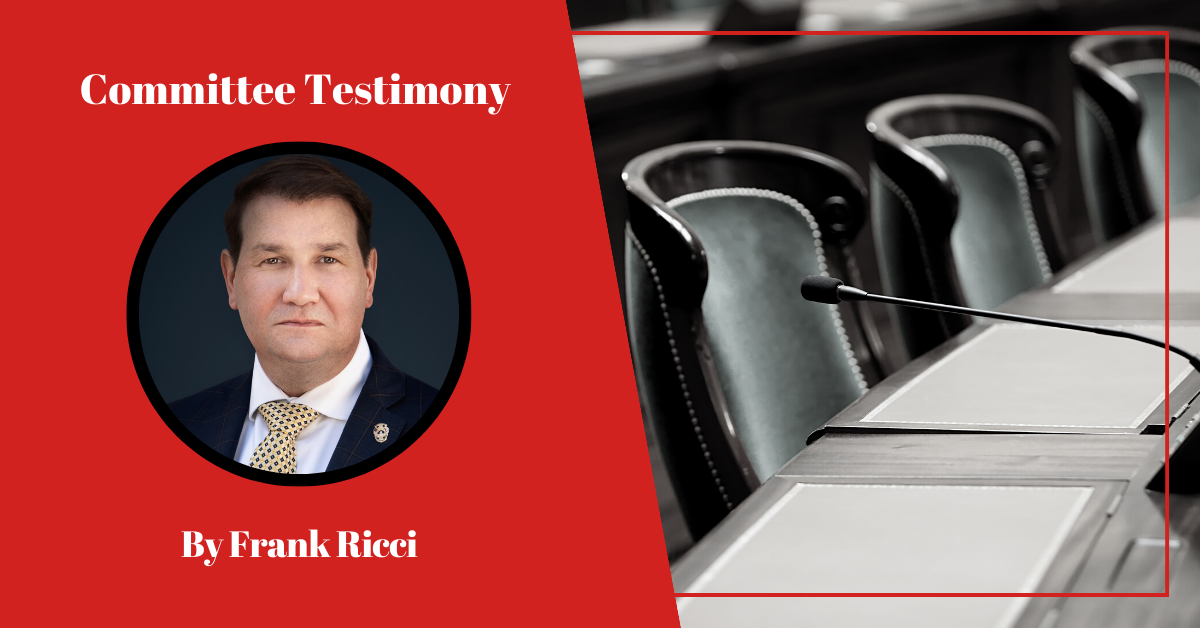My name is Frank Ricci and I serve as Yankee Institute’s Labor Fellow. Yankee Institute is a policy organization dedicated to empowering Connecticut’s people to forge a brighter future for themselves and their families.
Yankee Institute opposes these bills. They threaten the balance of the worker-employer relationship, the well- being of Connecticut’s economy, and expand state government intervention into the free market by mandating paid sick time for small business and imposing costly and burdensome regulation.
The language in both bills is almost identical and both have a pernicious effect on small business. S.B. 1178 expands the way employees can utilize paid sick leave beyond their imminent family. The bill requires employers to allow for paid time off for their employees to care for someone they self-determine through their, “affinity, whose close association with the employee is the equivalent of any such family relationship. This language redefines the definition of “family” — extending it beyond even the most generous collective bargaining terms for sick leave use in most (if not all) municipal and state contracts. Employers may elect to do this with their employees already. Mandating it puts government’s thumb on the scale in the relationship between employees and job creators and incentivizes improper use of what should be a private agreement.
S.B. 1178 also requires all employers to provide 80 hours of paid leave each year and provides penalties and civil action through the Attorney General’s office for failure to keep accurate balances of employee leave records. The bill creates additional bureaucratic administrative process through the Labor Commissioner’s office that can result in a host of damages and fines. It is likely to be the last straw for many small businesses already struggling to stay afloat.
S.B. 6668 dictates that employers with a workforce of 11 or more provide 40 hours of paid leave. The bill likewise threatens to have an economic impact on employers with a total workforce of fewer than ten employees by mandating 40 hours of unpaid leave. The Governor’s bill also creates additional administrative processes that permit the Labor Commissioner to hold administrative hearings and levy fines.
Neither bill considers the financial situations of small businesses, many of whom struggled mightily through the pandemic.
They impose additional administrative requirements on employers and even eliminate exceptions for nonprofits and manufacturing. This legislation goes so far to dictate benefits for part-time workers who work 30 hours per week — allowing employees to accumulate 1 hour of leave per every 30 hours worked. The bills include no language to address fraud or abuse of leave.
These bills from the Governor’s office and the Labor Committee are completely one-sided. Government must balance workers’ interests with those of taxpayers, citizens, and job creators — leaving it to labor organizations to serve as workers’ advocates. It’s worth noting that the National Labor Relations Act already provides private employees robust organizing rights to workers in our state. We have witnessed local organizing drives at Starbucks, resulting in a new unionized workforce where employees can bargain with their employer.
Private negotiations allow workers and job creators alike to work out mutually agreeable solutions to their issues. By contrast, through these bills, state government is imposing mandates without benefit of specialized knowledge or experience, acting as employees’ partisans without regard for the needs of the Connecticut economy or small business.
Mandating sick days will increase the costs of doing business, which is likely to be passed on both to consumers in the form of higher prices and to employees in the form of reduced benefits or wages. It could also lead to negative economic consequences such as job losses, reduced investment, and decreased competitiveness. It will certainly deter any new company from deciding to locate in Connecticut.
What’s more, it presumes that employees prefer expanded benefits to more take-home pay. Isn’t it possible that many people would prefer higher salaries over added benefits? And shouldn’t the state allow employees to make these decisions for themselves?
Such arbitrary regulations create inequities in the employee/employer relationship that can result in job cuts, barriers to growth and erosion of the state’s tax bases. For Connecticut to flourish, our small businesses must be able to prosper and compete with the big chains that can better absorb such expensive new regulations.
Thank you for the opportunity to provide testimony before this distinguished committee.

